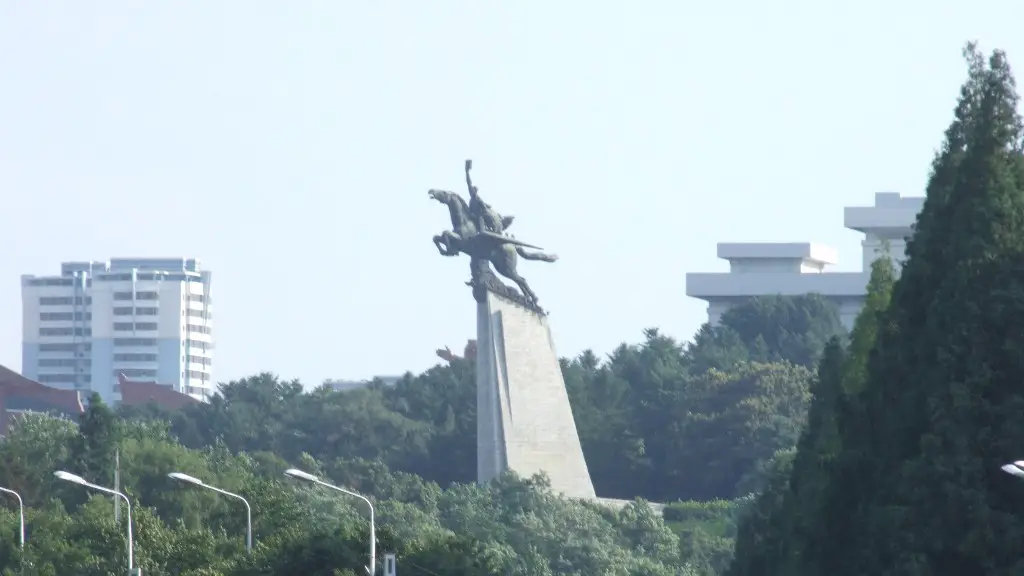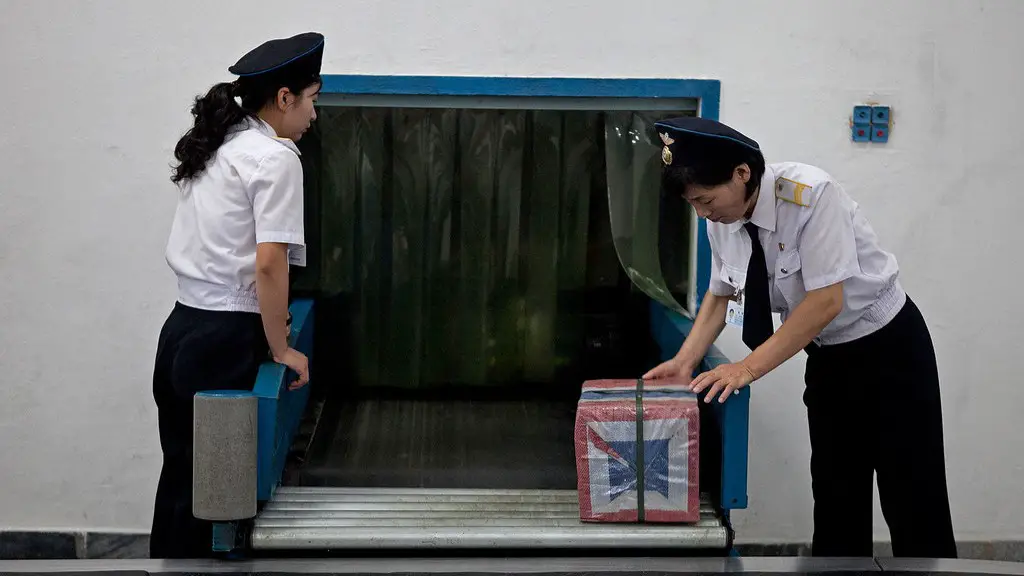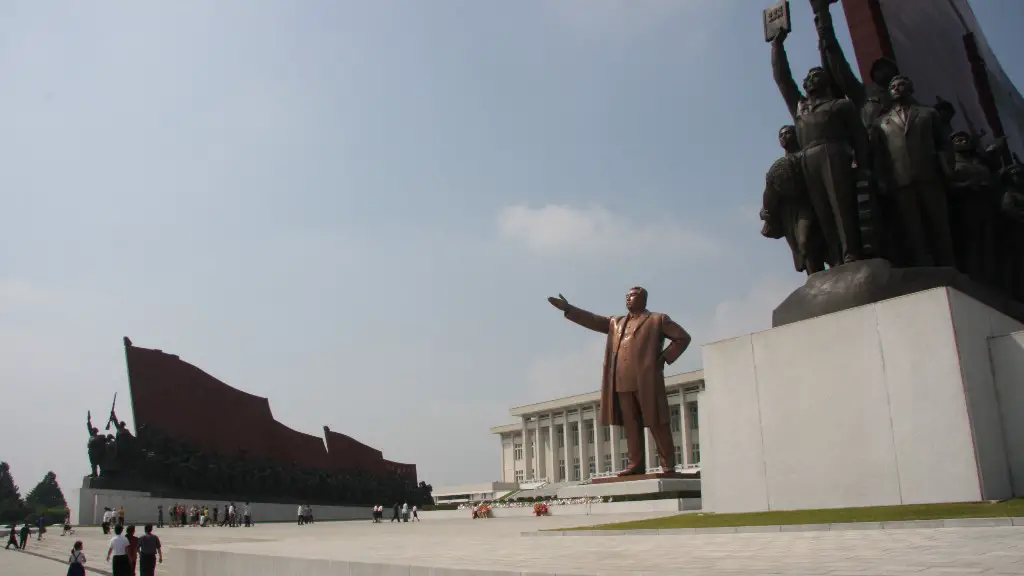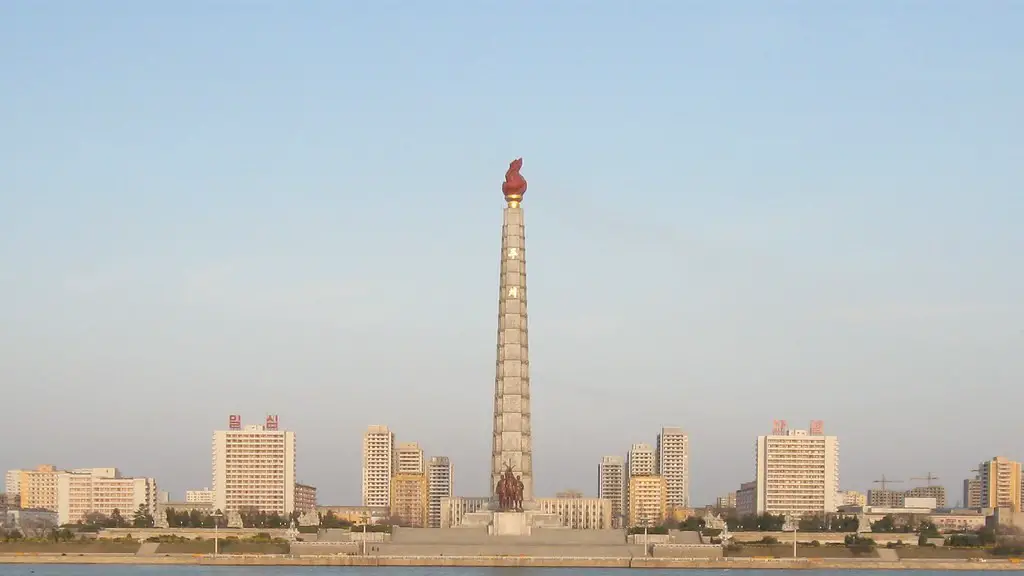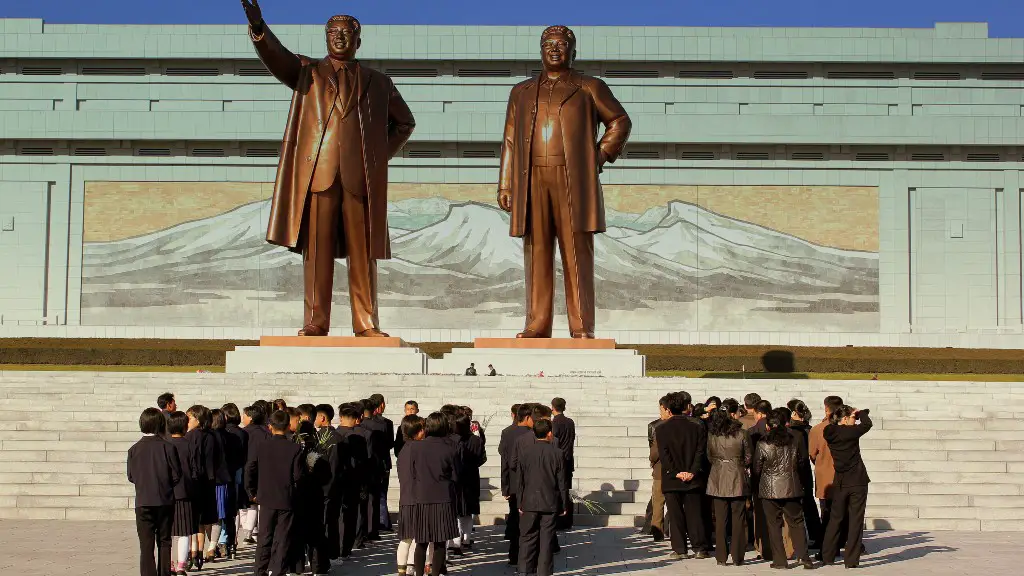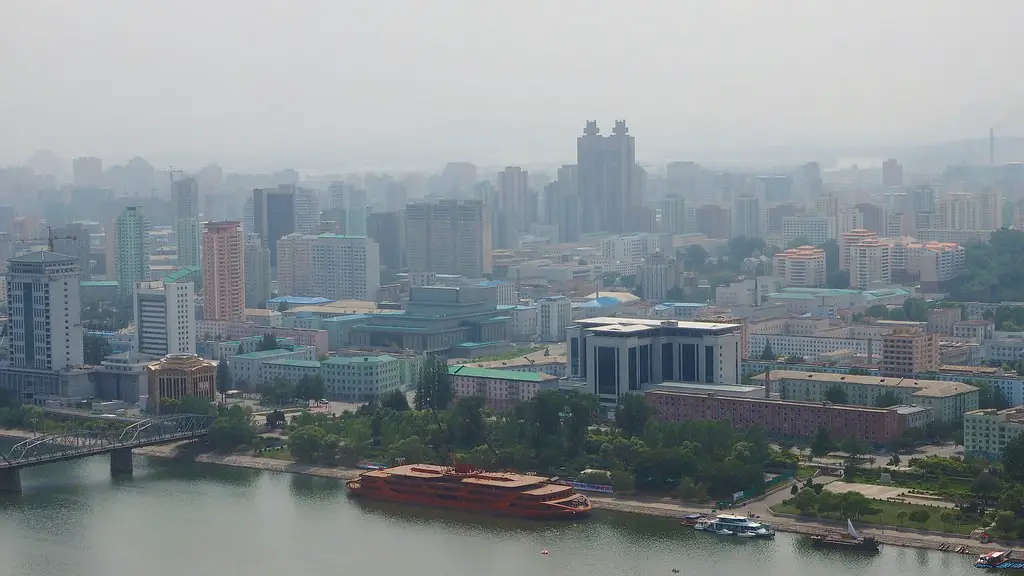The North Korean regime is one of the most isolated countries in the world, having been under the control of the Kim family since the 1950s. Despite its economic stagnation increased international pressure, the North Korean government remains staunchly opposed to reform and, for a long time, seemed invincible. But recent developments have given rise to new questions: Will North Korea eventually fall?
Perhaps the best way to answer this question is to understand the forces that are driving change in North Korea. While the country has remained unchanged for decades, recent improvements in nuclear technology, increased international sanctions, rising domestic unrest and a break in the traditional dynastic succession, have all combined to create a perfect storm of factors that could impact North Korea’s future. On the one hand, North Korea remains steadfastly independent and has changed little in spite of external pressure. But on the other, the country may eventually succumb to external forces if it is unable to adapt to the changing environment.
Experts have divided opinions about the future of North Korea. Some argue that the country will remain stubbornly independent, as it has since its founding. This viewpoint is partly fueled by North Korea’s past stability and its seeming ability to survive through difficult times. However, other experts suggest that the country is on the verge of an implosion. This argument is based on the fact that North Korea is in a rapidly changing environment, and its leaders may no longer be able to maintain their grip on power.
The world has already witnessed the fall of other dictatorships in the past, including those of Romania and the Soviet Union. In each case, the end of the regime was initiated by outside forces, often aided by popular uprisings against the government. While North Korea is a much more totalitarian state, and its citizens have much less freedom than their counterparts in other dictatorships, it is possible that there could be domestic unrest or a revolt against the regime if the people become too frustrated with the lack of progress.
Despite the potential for change, it is unlikely that North Korea will fall quickly or without warning. The regime is well-prepared and well-armed, and while there has been speculation that outside forces could intervene to topple the government, it is highly unlikely. It is more likely that the country will continue to stumble forward in its isolation, struggling to keep up with the rest of the world, until eventually the strain becomes too much for it to bear.
Ultimately, the answer to the question of whether North Korea will eventually fall is difficult to predict with certainty. The country is in a state of flux, and its future is in many ways unclear. However, it is important to understand the forces that are shaping North Korea, and to consider the possibility that the country could reach a tipping point in the near future.
Impact of External Sanctions
The most likely scenario for North Korea’s eventual downfall is through the imposition of external sanctions. The US and its allies have imposed increasingly stringent sanctions on North Korea since the country’s missile tests in 2006 and particularly since its nuclear detonation in 2016.
The sanctions do not apply to basic necessities like food and medicine, but instead target the regime’s access to foreign currency, luxury goods, minerals and arms. The purpose of these sanctions is to cripple the regime’s ability to sustain itself and its nuclear and missile programmes.
So far, the sanctions have not had a dramatic effect on the regime, but they have caused considerable economic disruption. North Korea’s GDP growth has stagnated and its diplomats are being pressured by the international community to consider changes. The country is still unlikely to change its policies in the near future, but the sanctions are clearly having an effect and could potentially lead to greater reform if they continue.
The problem with this scenario is that sanctions can take years or even decades to have an effect, and North Korea may be able to survive for many more years in its current state. Of course, the regime could also adapt to the sanctions and continue as before – but if it does not, the sanctions could be the catalyst that tips the country over the edge and leads to its eventual downfall.
Rise of Domestic Unrest
External pressure is not the only factor that could cause the regime to collapse. In the past, popular uprisings have toppled dictators in other countries, and the same could potentially occur in North Korea if circumstances become unbearable for the population.
North Koreans live in extreme poverty and deprivation, with restrictions on speech and other basic liberties. As the regime becomes increasingly isolated and its citizens suffer more, it is inevitable that some will eventually become fed up enough to take action.
The regime is aware of this potential, and has taken steps to suppress any signs of discontent or unrest. North Korea has a brutal system of censorship and repression, and even the slightest hint of dissent is met with harsh punishments.
However, despite the regime’s attempts to stifle dissent, it is possible that discontent may build over time, leading to a mass uprising against the regime. While this scenario is unlikely in the near future, it cannot be ruled out entirely if the regime continues to ignore the needs of its people.
Changing Succession Dynamics
A third factor that could contribute to North Korea’s eventual downfall is a change in succession dynamics. North Korean leaders have typically kept power within the Kim family, with the current leader, Kim Jong-un, succeeding his father, Kim Jong-il.
However, Kim Jong-un does not have any children and is thought to be in ill health. This has led to speculation over who will succeed him, and there is potential for a new leader with different ideas and policies to emerge.
This could lead to a shift in North Korea’s policies, and even the possibility of reform if the new leader decides to adopt a more liberal approach. Of course, it is also possible that the new leader will be just as oppressive as Kim Jong-un, or worse.
Either way, a change in leadership could have a significant impact on the country’s future. It is therefore important to keep an eye on the dynamics of the succession process, and to consider how it could contribute to North Korea’s eventual downfall.
Limitations of Attempted Changes
Even if there is a shift in leadership and a wave of reform takes place, it is important to remember that any changes are likely to be limited due to the regime’s efforts to maintain control.
For example, Kim Jong-un has already implemented several economic reforms, such as loosening the state’s control over foreign investment and introducing economic zones.
However, these reforms have not had a significant impact on the country’s poverty levels or living standards, and it is likely that any future reforms would be similarly limited.
The regime’s control over the media, military and other institutions is also a major obstacle to meaningful reform, and it is likely that any unwelcome criticism could be swiftly suppressed.
Overall, it is important to remember that any attempted changes in North Korea are likely to be limited and tentative, due to the regime’s unwillingness to relinquish power.
Growing International Isolation
Finally, North Korea is facing increasing international isolation as a result of its nuclear weapons programme and its refusal to comply with UN sanctions. This has enraged the international community, and North Korea is now almost universally regarded as a pariah state.
The country’s isolation is likely to worsen over time, as the international community continues to ratchet up the pressure and refuse to normalise relations with the North Korean government. This could have a major impact on the country’s economy, increasing its vulnerability and potentially leading to its eventual downfall.
At the same time, North Korea’s growing isolation could also damage its reputation in the international community and lead to further sanctions and a decrease in international assistance. This would further weaken the regime and could potentially lead to its eventual downfall.
Implications For The Region
The potential collapse of North Korea would have major implications for the region, particularly for its closest neighbours, South Korea and Japan.
If the North Korean regime was to fall, it is likely that the country would be unified with South Korea, with the two Koreas forming a single unified country. This would bring new opportunities for economic growth and regional integration, but it would also potentially lead to major social and political changes.
The region could also be destabilised by a power vacuum in North Korea, with neighbouring countries competing for influence and control of the North’s resources and population. This could lead to increased tensions between the countries, as well as potential conflict.
There is also the possibility of a large influx of refugees and displaced persons into the region, with thousands of people fleeing the country in search of a better life. This would put an enormous strain on the resources and infrastructure of the neighbouring countries, and could even lead to an increase in crime and social unrest.
Conclusion
The future of North Korea is a complex and unpredictable one. There are numerous factors that could contribute to the regime’s downfall, such as external sanctions, domestic unrest, changes in succession dynamics, and increasing international isolation. However, it is likely that any changes that take place will be slow and gradual, and it is difficult to predict when or if the regime will fall.
